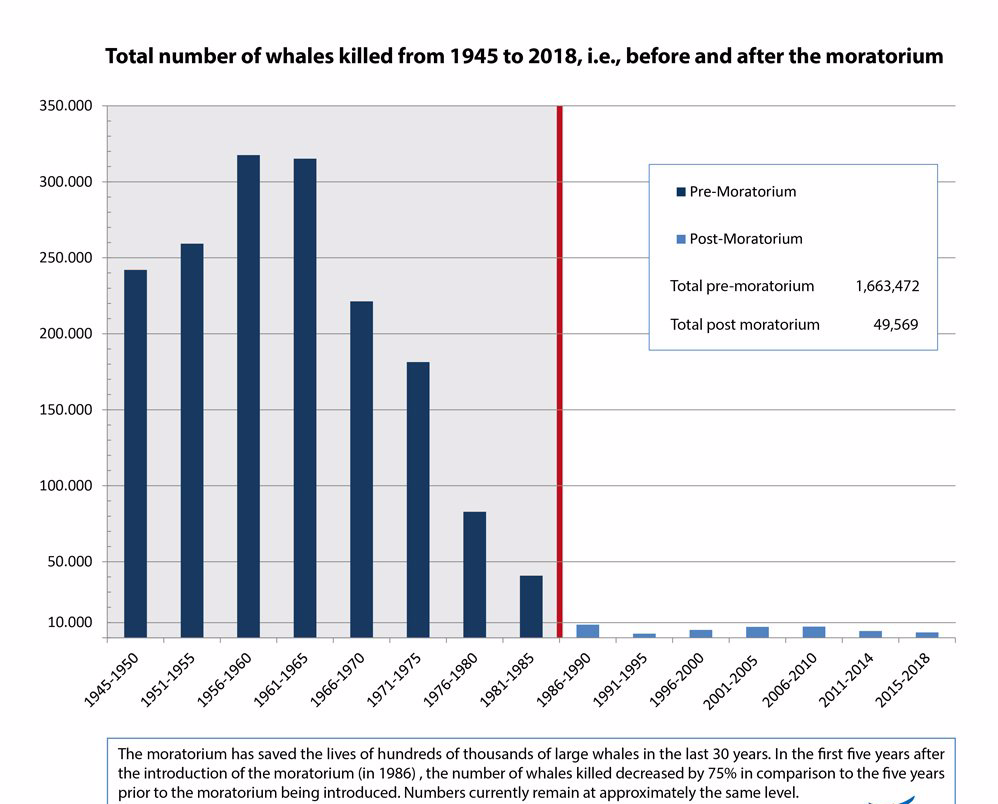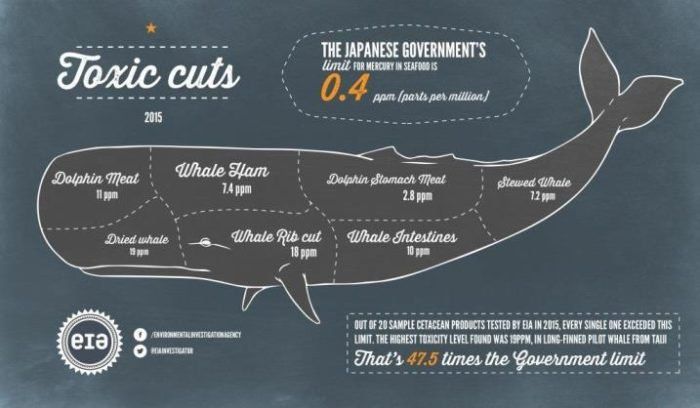Japanese Government to Fund More Whale Hunts!
Despite global out-cry and Japan's declining demand for whale meat, Japanese parliament officials have just passed a new law to help financially support commercial whaling through increased funding.
This year Japan re-commenced commercial whaling in July 2019, having left the International Whaling Commission (IWC) and going against a global moratorium on whales, they began commercial hunts again after 32 years. Yesterday, December 5th Japan's Diet (parliament) revised a law which won the support of the Diet (Japanese parliament) to fund and promote the consumption of whale meat. Japan had been a member of the IWC since April 21st, 1951.
This will mean the government will support the country's whaling industry, help whalers to secure ships and crew, in addition to promoting the consumption of whale meat in schools.
Japan's whale-hunting activities have led to out-rage from the international community and an inquiries from the International Court of Justice ruling against Tokyo, which defends the activity as being a part of its tradition and citing its economic importance, despite the currently modest demand in the country for whale meat.
In Japan, whaling provides direct employment for only 300 people, without including the processing and packaging industries for whale meat, according to data provided by the government.
The annual consumption of whale meat in Japan has reduced to 5,000 tons in recent years, a demand which is largely filled by imports, and is a far cry from the peak demand of 230,000 tons per year reached in the 1960s, when it was commonly consumed all over the country, including in school lunches.
The International Humane Society outlines how toxic whale meat is and how it should not be fit for consumption:
" Whales are particularly vulnerable to environmental contaminants, including organochlorines—such as polychlorinated biphenyl (PCBs), dichlorodiphenyltrichloroethane (DDT) and dioxin—and heavy metals, such as methylmercury.
Each of these environmental contaminants tends to accumulate in the bodies of top predators, including sperm whales, orcas, pilot whales, and false killer whales. The most contaminated whale meat has come from those species that are fish or mammal eaters such as dolphins, porpoises, sperm whales, and beaked whales.
Baleen whales, such as minkes, feed lower on the food chain, and their tissues generally contain lower levels of contaminants. Nonetheless, tests of the blubber of minke whales from the north Pacific have shown unsafe levels of pesticides and PCBs."
Furthermore effects on human health can be lethal:
" In Japanese markets, generic whale meat or “kujira” is said to come from the minke whales killed as part of the so-called scientific whaling program. However, tests have shown that not all kujira is minke whale meat. Some of it is dolphin, porpoise, or beaked whale meat. People who eat kujira, thinking they are avoiding unsafe levels of contaminants, may in fact be eating meat that contains very high levels of toxic substances.
PCBs can cause nerve damage, reproductive and developmental disorders, immune system suppression, liver damage, skin irritation, and endocrine disruption. DDT exposure is associated with certain cancer risks and neurological and reproductive disorders. Dioxins can cause cancer, metabolic dysfunction, and immune system disorders. Methylmercury consumption can cause neurological and developmental problems. The contaminants are often highly concentrated in blubber because they are lipophilic, meaning they bond easily and even preferentially to fat.
One study of Faroe Islanders detected developmental disorders in children whose mothers consumed pilot whale meat and blubber regularly during pregnancy. In addition, some Inuit communities in the Canadian and Alaskan Arctic—where mothers regularly consume beluga whale meat and blubber (as well as meat from bowhead whales, seals, and polar bears)—have detected health problems in children who were exposed to contaminants in utero and through breast milk.
Whales no longer live in a pristine environment; we have polluted their habitat with poisons that concentrate in their tissues. Regardless of the amount, the consumption of whale meat can expose humans to dangerous contaminants.".
© Ocean Research & Conservation Ireland (ORCireland) and www.orcireland.ie , est. 2017. If you like our blogs on the latest news in marine science and would like to support our work, visit www.orcireland.ie to become a member, to volunteer or to make a donation today.
SHARE THIS ARTICLE
















